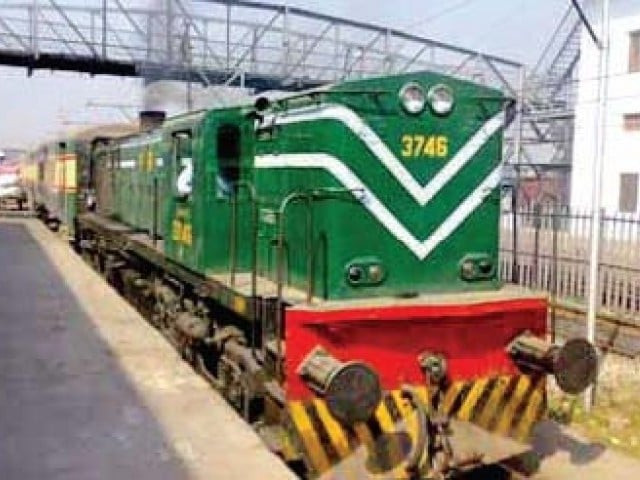For circular railway, another setback as KUTC chief removed
Managing director of Karachi Urban Transport Corporation transferred in questionable move.

The government has transferred the managing director of the Karachi Urban Transport Corporation in a move which raises questions about the fate of the billion dollar Karachi Circular Railway project.
Ijaz Hussain Khilji has been replaced with Sher Ayaz Khan, a railways ministry official, who will assume charge tomorrow (Monday). Khilji, himself a retired railways officer, had been associated with the corporation since it was set up.
The Karachi Urban Transport Corporation (KUTC) was established in 2008 as a regularity authority to prepare and oversee the transport plan of Karachi, mainly to revive the much talked about Karachi Circular Railway (KCR).
“This is come has a shock for us,” said an employee of the Japan International Corporation Agency (JICA)’s Islamabad office. “We are so close to signing an agreement with the Pakistan government [for the project]. Let’s hope this does not delay the project.”
The Japanese agency is at the forefront for the revival of the $1.558 billion railway project, termed vital for addressing the traffic woes of Karachi. The project has been facing continuous delays as the government is focussed more on meeting immediate security and economic challenges.
The scope of the circular railway project is huge. The electrical locomotives will run on a system of elevated, on-ground and tunnel tracks spanning 43.12 kilometres at an average speed of 44 km per hour. Once revived, the KCR will cut travelling time across the city by half and provide an alternative against the congested public buses running in the city.
The KCR also includes 24 stations from where passengers will embark and disembark the trains. A train will pass a station every six minutes, catering to 700,000 people a day.
JICA will bear 93 per cent of the cost of the circular railway, which is planned for launch by 2017. The Japanese government is expected to officially commit itself to financing the KCR during an international donor conference scheduled in October 2012.
The notification of Khilji’s transfer was issued on July 25 and came as a shock for the people associated with the project. Khilji is bitter.
“Ask JICA how much my transfer could cost this project,” he said, playing down the importance of the notification in the same breath. “I will remain associated with the project.” It remains unclear where Khilji has been transferred and in which capacity his services will be hired.
The KUTC’s managing director is supposed to be hired through a competitive process where applications are called from around the world. But that never happened. Ayaz Khan has been appointed on a one-year contract.
The transport corporation has had its fair share of negative publicity under Khilji’s command. A female staff member has been routinely complaining about his behaviour to journalists. She even shouts outside his office when Khijli is briefing the newsman.
One of the problems facing the KCR project is encroachments on the tracks. At least 20 per cent of the track has been encroached upon from both sides in different areas, including Liaquatabad, North Nazimabad and Lyari.
Around 23,000 people residing in such colonies have to be resettled at Shah Latif Town before construction of tracks can start. Each family has been offered a 80-square-yard plot and Rs50,000 in compensation, but the representatives of the affected residents say the KUTC has yet to take them into confidence.
Published in The Express Tribune, July 29th, 2012.



















COMMENTS
Comments are moderated and generally will be posted if they are on-topic and not abusive.
For more information, please see our Comments FAQ